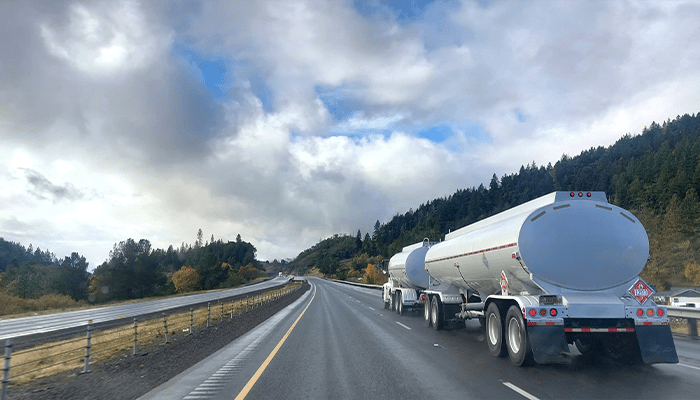
The EV Fire Risk Every Dealership Should Be Preparing For
Electric vehicles (EVs) are no longer a niche offering on the lot. Whether you're selling them directly, servicing them, or simply taking them in on trade, there's no avoiding the increased presence of EVs in your dealership. And with that presence comes a growing and underappreciated risk: lithium-ion battery fires.
While EVs offer efficiency and innovation, lithium-ion batteries introduce a new level of exposure that most dealership facilities were never designed to handle. Unfortunately, we’re now seeing just how serious that risk can be, especially when it comes to insurance claims, operational downtime, and employee safety.
Have questions or want help reviewing your current insurance program? Speak with a dealership insurance specialist today.
One Small Fire, One Massive Claim
Consider this: a recent lithium-ion battery fire at a dealership started small and was contained within 30 minutes. However, it still resulted in an $8 million claim. Why? Beyond the direct fire damage, the cleanup and remediation were extensive. Air quality tests, disposal of contaminated inventory, and over a month of lost business income turned a relatively minor incident into a financial nightmare.
The Coverage You Might Be Overlooking
If a lithium-ion battery fire occurs, what part of your insurance policy responds? The answer could be almost all of it. Building, contents, business income, garagekeepers, pollution, general liability, inventory, and even workers’ compensation could be triggered.
As insurers begin to see more of these claims, they’re asking tougher questions during underwriting:
- How are batteries stored?
- Are fire suppression systems up to date?
- What procedures are in place for damaged or recalled vehicles?
Being proactive is no longer optional.
Storage and Suppression: What the Codes Say
NFPA 855 and emerging standards like NFPA 800 are setting the tone for proper battery storage and emergency response:
- Indoor battery storage should include fire alarms, sprinkler systems, and clear separation from exits.
- Outdoor storage must avoid placing EVs or batteries near buildings or lot lines.
- Avoid using fire blankets on EVs. Research shows they can actually increase the risk of explosion.
Sprinkler systems are becoming the industry standard, especially as clean agent suppression systems have proven less effective. In some cases, the safest approach may be a “let it burn” strategy in
a controlled outdoor area far from structures.
Protecting Your Employees
Technicians working on EVs face risks that traditional vehicles don't present. That's why only certified technicians should handle high-voltage systems; even then, personal protective equipment (PPE) is essential. Electrical gloves (with under- and over-gloves), insulated tools, signage, and buddy systems are part of the new norm. AEDs and CPR training should also be included in your dealership's safety protocols.
What You Can Do Now
Here’s where to start:
- Update your Job Hazard Analyses to reflect EV-specific risks.
- Review and revise your Emergency Action and Fire Prevention Plans.
- Ensure your battery storage and EV handling protocols meet the latest fire code standards.
- Conduct internal or third-party audits to confirm compliance.
- Train your team, not just your techs, on safe practices and what to do in an emergency.
EVs are here, and with them come new challenges that dealerships can’t afford to ignore. A fire that once might have cost thousands could now result in millions in damages, operational shutdowns, and liability exposure.
Want to learn more about the risks and best practices around EVs? Watch our recent webinar replay here.
Related articles

Commercial property insurance is one of the most important pieces of your risk management program. Whether you manage a portfolio of properties or operate one main location, your buildings and...

As the year comes to a close, business leaders are often focused on budgets, performance metrics, and new initiatives. Yet this season is also one of the most important checkpoints for risk...

Transporting hazardous materials in bulk packages or cargo tanks presents unique safety and regulatory challenges. Motor carriers and their personnel must be fully aware of federal requirements for...